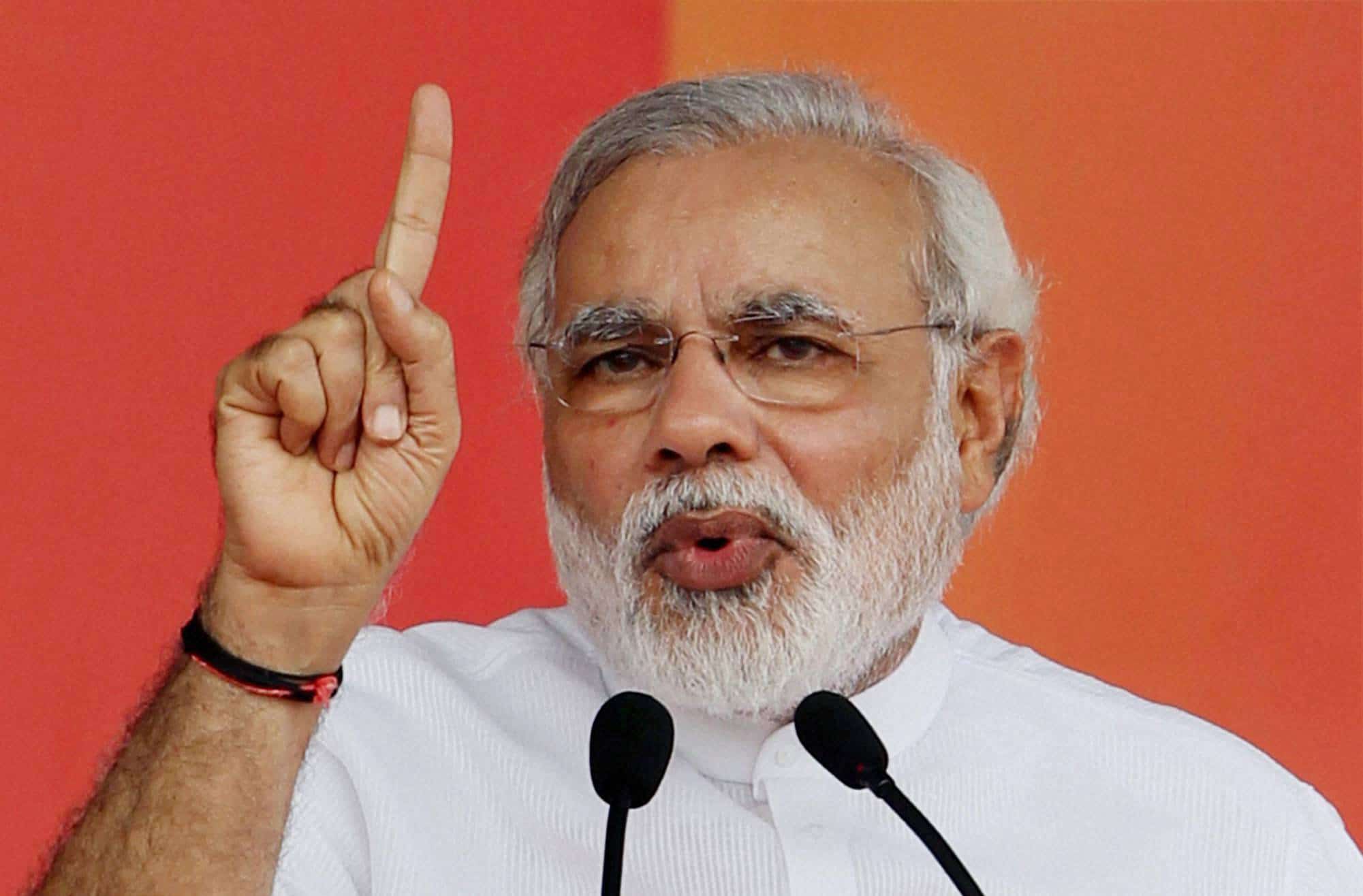Modi Government is completing its four years, here is the recap of the major economic decisions taken that had affected the Indian Economy during Narendra Modi’s tenure as a Prime Minister.
There were various steps taken to link several services with Aadhar, implemented Goods & Service tax, took the controversial decision of Demonetisation and brought the Insolvency and Bankruptcy Code (IBC).
Linking Various Services to Aadhaar
The Modi Government made it mandatory to link the Aadhaar number to various important documents in order to continue their services in the Indian Economy which includes:
- Linking of Aadhaar with PAN
Taxpayers were supposed to link their Aadhaar with PAN using the Income Tax Department’s e-filing portal. This step was taken with an objective of curbing duplicate PAN cards in the economy.
- Linking of Investments with Aadhaar
Thirdly, steps were taken to link your investments like mutual funds and insurance with the Aadhar number. The objective was to have a holistic view of wealth of a taxpayer and avoid black money to move to capital markets. The mutual fund will not be operational if not linked and the insurance policies would become inaccessible if not linked.
Pradhan Mantri Jan Dhan Yojana
In order to implement Direct Benefit Transfer and linking of Aadhaar with the system to cut leakages, the most important step was to have inclusion of rural India in the banking system. This movement helped in both Direct Benefit Transfer and Demonetization schemes. 31.56 Jan-dhan accounts were opened as on 02.05.2018.
- Linking of Bank Account with Aadhaar
The next important thing the government worked on was to link bank accounts with the Aadhaar number. This was essential to curb leakages in Direct Benefit Transfer schemes. Government had already saved more than 50k crores by curbing fake identities causing leakages in benefit schemes by 2017.
Implementation of Goods & Service tax
Prime Minister Atal Bihari Vajpayee first took the initial idea about GST, in the year 2000. The Modi Government in 2017 implemented Goods & Service tax in the Indian Economy, which is comprehensive indirect tax on consumption of goods and services throughout India, to replace taxes levied by the central and state governments.
The structural reform went though criticism about its implementation, particularly due to the huge compliance burden for small enterprises in its initial launch. But this decision brought a lot of benefits such as:
- No cascading effect of taxes on consumer and enterprise
- Seamless flow of tax credit from manufacturer to consumer
- 17 indirect taxes subsumed by one tax
- No Trade check posts therefore less transportation time.
New Indirect tax System has increased the tax base and revenue for the first year of implementation stood close to 7.5 lakh crores.
Demonetization
The Indian Economy was greatly affected when the Modi Government announced demonetization of all ₹500 and ₹1000 banknotes of the Mahatma Gandhi Series in a live television address at 20:00 Indian Standard Time (IST) on 8 November 2016. This step was taken to combat black money, fake currency and terror funding from the Indian Economy.
This led to an increase in direct tax base as well as collections. Net Direct Tax Collections for 2017-18 amounted to Rs. 10.03 lakh crore, which is 18% higher than the collections for 2016-17. Growth in direct tax revenue in and after the year of demonetization indicates the positive impact of various tax policies including demonetization.
During the last Financial Year 2017-18, Net Direct Tax collections have crossed Rs.10.03 lakh crore mark which is 18% higher than the collections during the FY 2016-17: pic.twitter.com/SGDlhD77hy
— Ministry of Finance (@FinMinIndia) May 23, 2018
Insolvency and Bankruptcy Code (IBC)
IBC took shape with increasing NPA mess across the country. The fight against the NPA mess is showing some results as well. Over 2,100 companies have settled Rs 83,000 crore bank dues in resolution process. Biggest master stroke of IBC has been recovery of Rs. 36,400 crores in bank’s kitty from Bhushan Steel. Finance ministry expects banks to get back over Rs 1 lakh crore with resolution of 12 major NPAs.
The government yesterday cleared the amendments to the Insolvency and Bankruptcy Code (IBC). The government has also addressed the woes of home buyers and making recoveries easier for lenders. The home buyer will be treated as financial creditors, which will allow them to equally participate in an insolvency resolution process. The government has suggested relaxations for Micro, Small and Medium Enterprises (MSMEs) under the IBC.
#IBC transforming CREDIT CULTURE in #NewIndia. Abt RS 35000 cr reduction of #NPAs of #PSBs in Bhushan Steel case. Reduction of NPAs in individual PSBs range from abt Rs. 500 Cr. to over Rs. 10,000 Cr. @PMOIndia @FinMinIndia @PIB_India
— Rajeev kumar (@rajeevkumr) May 21, 2018
Employee Social Security – Pradhan Mantri Rozgar Protsahan Yojana (PMRPY)
In order to ease the burden of EPF contribution of employers and to promote hiring/employment; Modi government announced PMRPY scheme to contribute 8.33% of employer’s contribution to EPF which has gone up to 12% in current fiscal year.
Central government will now reimburse the entire employers’ contribution of 12% under EPF & MP Act for New Employees in all sectors under PMRPY. #Budget2018 #NewIndiaBudget pic.twitter.com/DRdzSckK0f
— Ministry of Labour (@LabourMinistry) February 1, 2018
Scheme has shown positive signs as over 50,000 establishments across the country have enrolled more than 40 lakh fresh employees in previous 10 months. The government also gave an amnesty opportunity to the employer to enroll employees with EPF who were eligible but not been given benefit. This also resulted in enrollment of 82 lakh employees across the country.
Government also announced Aadhaar linked UAN (Universal Account Number) system for EPF accounts which enabled easy withdrawal for employees using UMANG app and to reduce the dormant accounts with EPFO. Over 3.63 crore aadhaar numbers have been seeded with the UAN allotted.
Overall Report Card of Indian Economy
Overall the economic decisions were taken to make structural changes. The Modi Government also took great initiatives like Saubhagya Yojana and Ujjawala Yojana to enhance the quality of life of the poor. Indian Economy has recovered from all the reforms and continuing to grow steadily. The big macro challenges remain to be fuel prices, declining rupee, NPA and EX-IM balance. India has done well on Ease of doing business rankings and now aims to be in the list of top 50.
The government motto has not been to distribute money among the people rather empowering them to work hard and earn money with scheme based support system.







